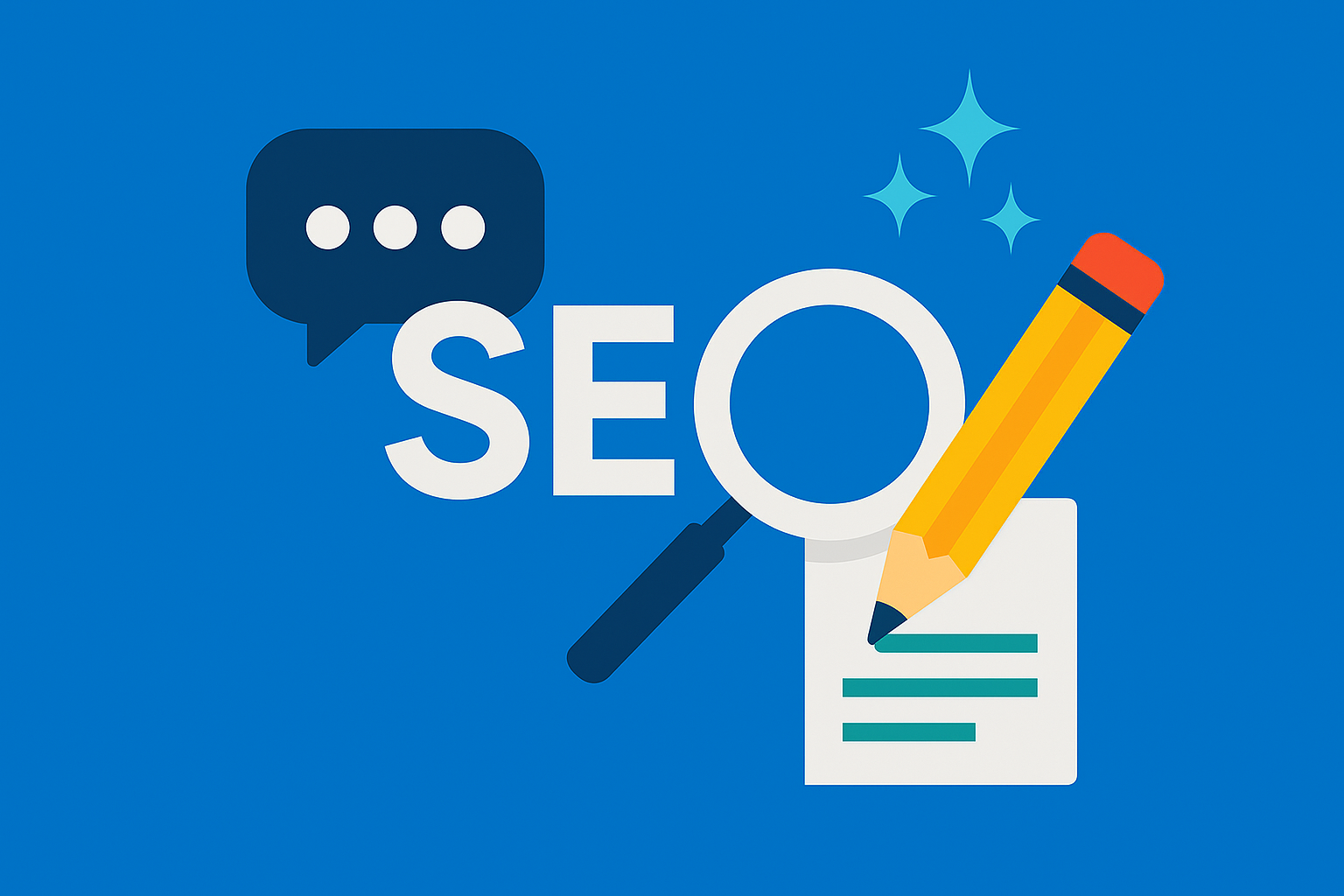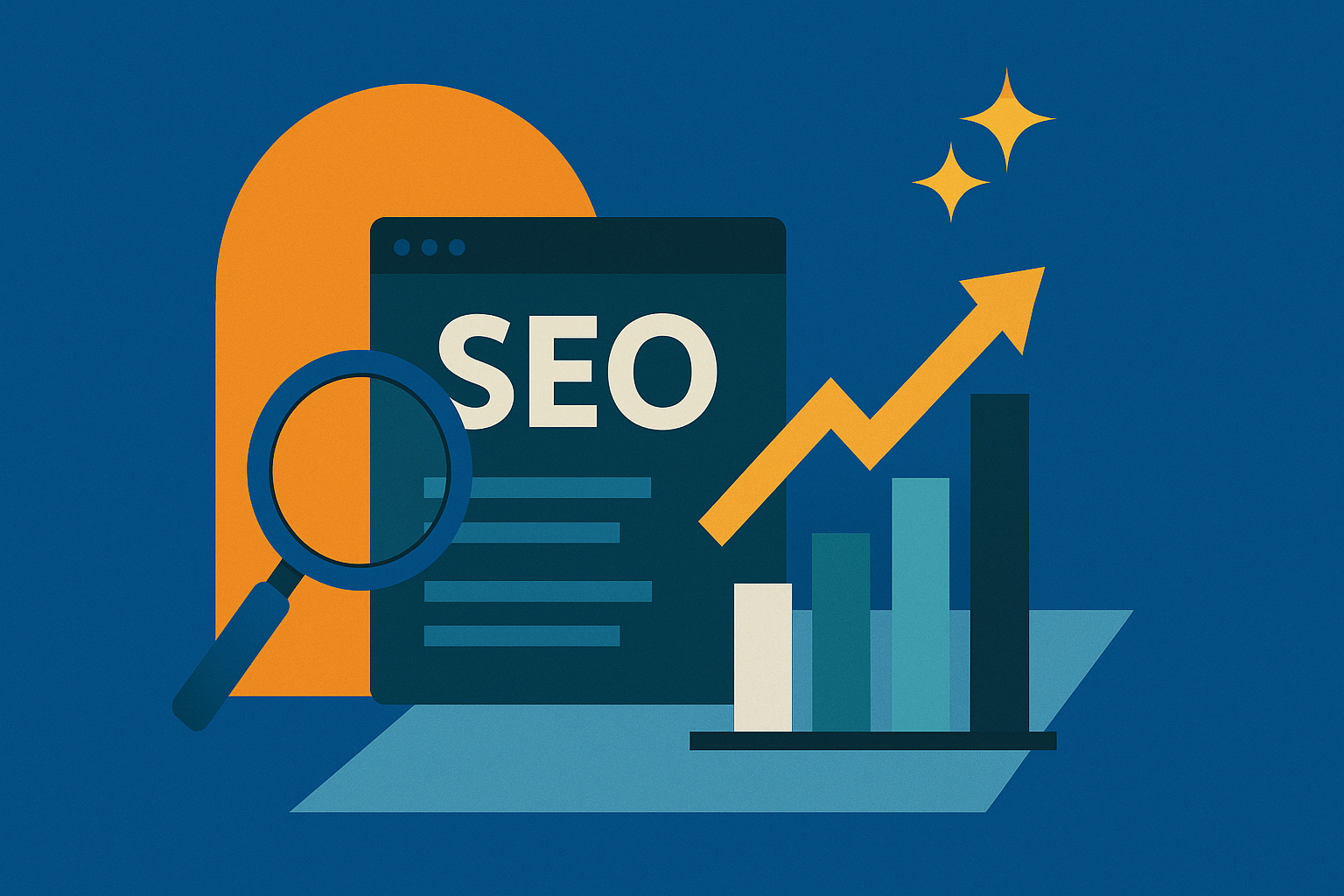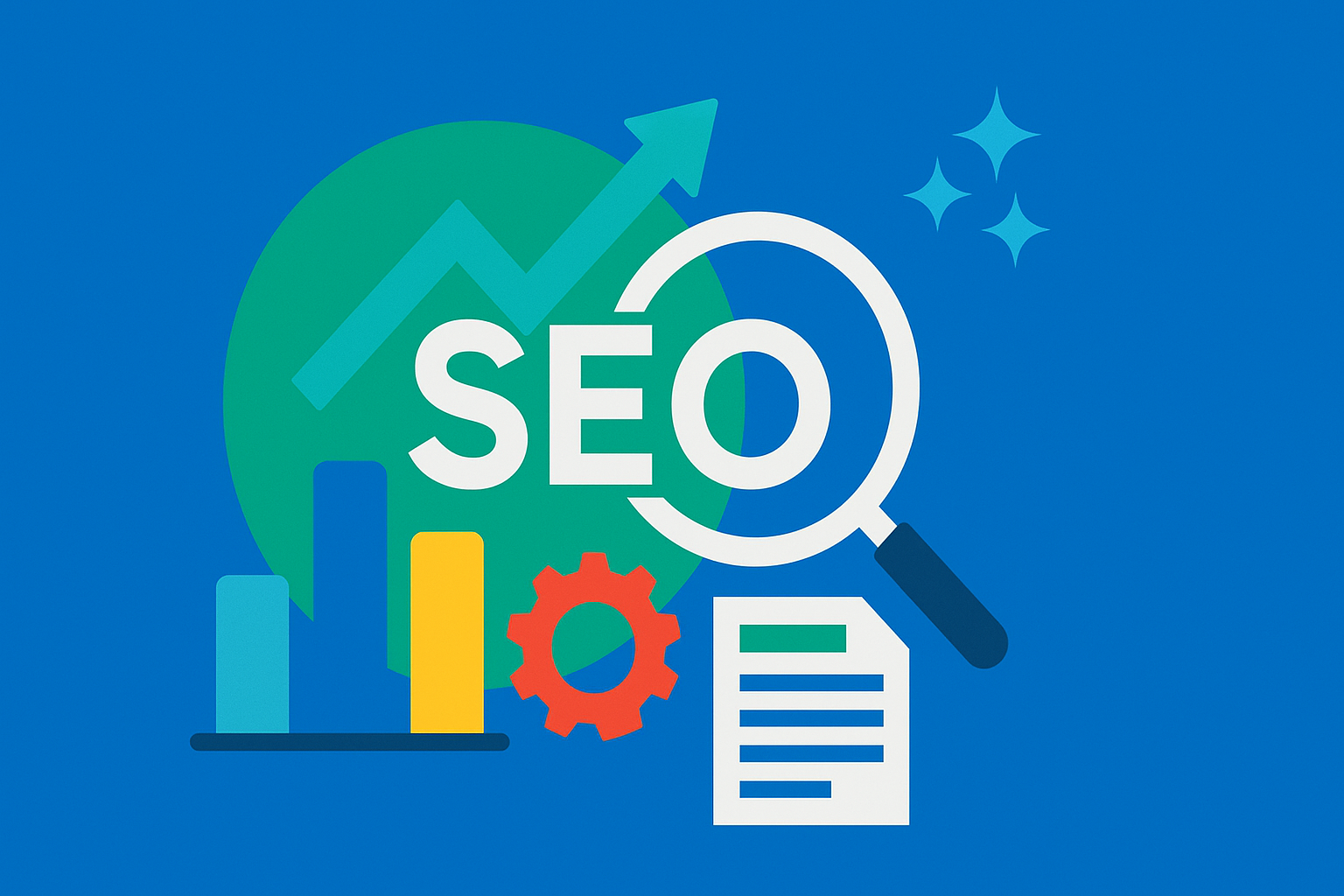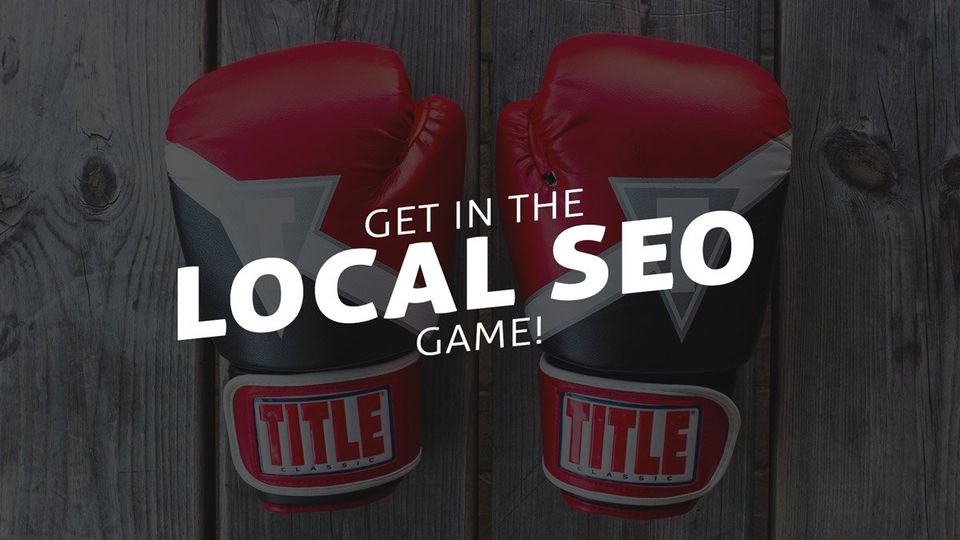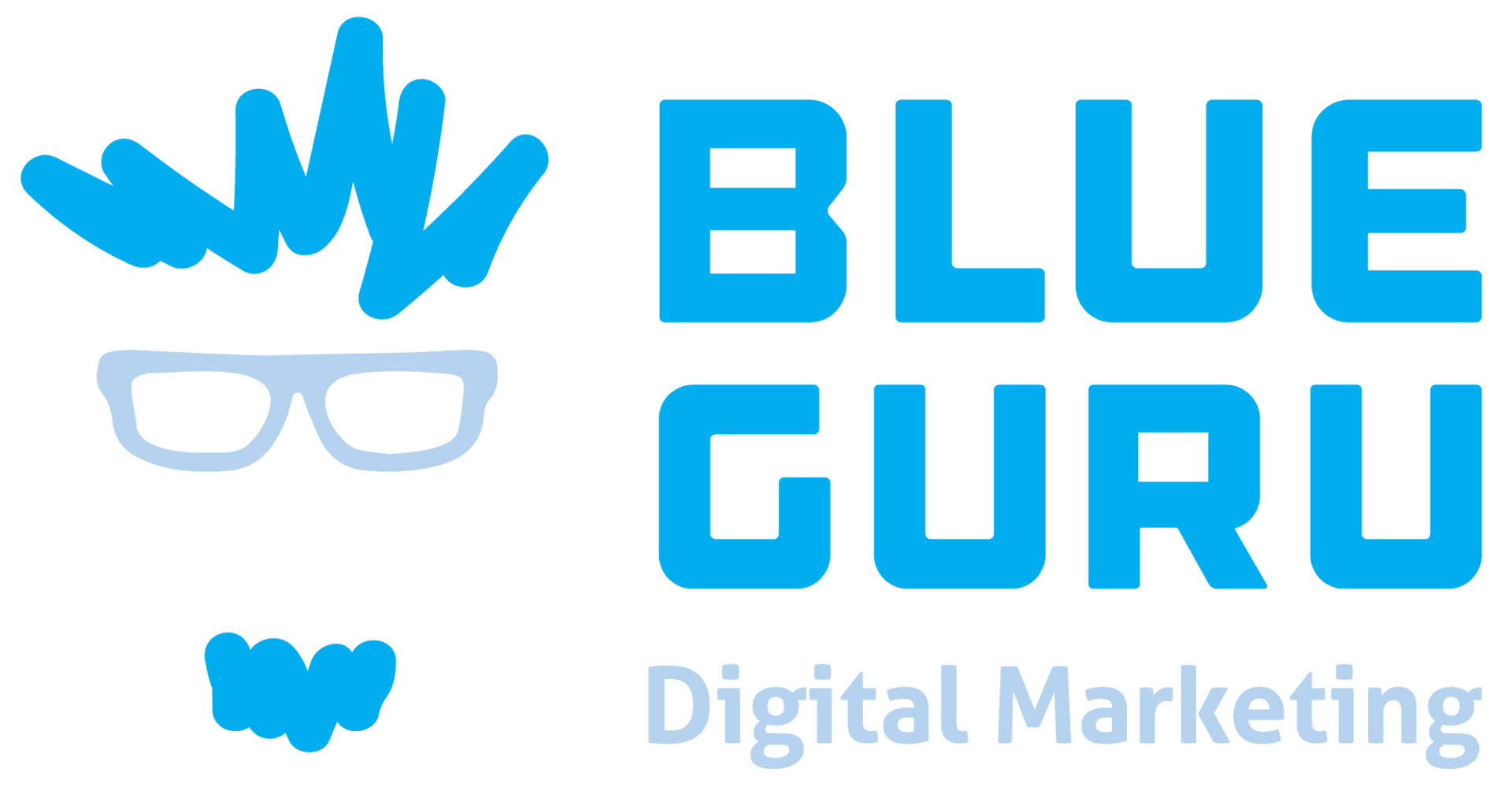A four-part video series on getting seen and found online.
Part 1: Local SEO for Small Business
Hey, guys! This is Gabe Gibitz with Blue Guru Digital Marketing. Making digital and data work for you.
Today were talking about local SEO. We're going to do a four-part series on local SEO. We are talking about what it is today. Then, we're going to talk about three things that you need to do NOW to get in the local SEO game.
So local SEO (SEO stands for search engine optimization) is optimizing you, as a business, so that people can find you on Google. Google takes 90% of the cake when you're searching online, so we just talk about Google. Now, someday that will change, but we're just talking about Google today.
Local SEO comes into play when you search for something like "pizza near me" or my wife is a doula, so "doulas in Lexington Kentucky." It typically pops up with a map and what we call a 3-pack, which is the top three businesses that Google thinks you would like. Before we talk about how to optimize your business to get there, let's talk about who can be on as a business.
If you have a brick-and-mortar location, an actual physical location, you can sign up as as a business on Google my business. We will talk about that more in the next video. You can also sign up if you have a service area without a physical office. For example, my wife doesn't have a location of her actual office but she serves people in the Lexington area, within like a 30 mile radius.
Now there certain kinds of people and businesses who can't apply. For instance, I am a musician, as well. I cannot apply to be a business as a musician. This also applies if you are an artist. There are specific people who simply cannot apply.
However, if you are a small business with a brick and mortar or you have a service location, you can apply and get into the local SEO game. In the next video, I will talk about Google my Business. The next video after that, we'll talk about getting into general directories. And the next video after that, we'll talk about reviews, what we SEOs call "review marketing," and why they are important.
Part 2: Google My Business
Today, we're talking about local SEO. This is part two of a four-part series, so if you missed the first one, go back and watch that one. It talks about just the basics of local SEO. Today, we are talking about Google my Business: what it is and why it's so important.
The first thing is Google, like I mentioned in the last video, takes about 90 percent of the pie when you're talking about searching for things online. Anything that Google says or does is going to be the most important thing to really listen to because they're leading the charge on everything search for the internet.
Google my Business is Google's way of allowing businesses with (1) brick-and-mortar locations or (2) with a designated service area register online. You're going to Google and saying, "I want to be found online."
When you go to google.com/business
, you need to sign in with your Google/Gmail account, and, once you do that, you can register. Fill out your name and your address. Then, you can have him text you or send you a card in the mail. That confirms that you are business.
There are ways to optimize it. You need to read all of the all of the information on how to name your business. If you are a doctor, you name your business differently than if you're a corporate business. If you are a one-person business you can write out "your business name" "colon" then your "actual name" if you want to do that. That allows people to find you in two different ways.
Now, you can't keyword-stuff for a location. For me, I can't say "Blue Guru Digital Marketing: Lexington, Kentucky." I can't do that. You will get dinged for that at some point. Even if you see other people doing it, don't do it. Your business needs to follow all the rules that Google has. They put them in place for a reason. You can put your location, and you can select a service area. If you work out of your home, you can select whether or not you want your location to be seen.
Then, that location – that address – needs to be everywhere. All over the internet. You have to have the same business name spelled and typed out the same way. And you need the same address everywhere on online.
If you are on Facebook or if you are on Yelp or if you are on Hotfrog or any of those places (which will talk about the next video), they have to be the SAME. It's called NAP: name, address and phone. All of them need to be the same. So, once you confirm firm that, we'll talk about directories in the next video.
If you have any questions, ask them in the comments below, and we will tackle them together .Let's head to the next video for general directories – what they are and why you need to be in them.
Part 3: General Online Directories
Today we are in part three of our four-part series on local SEO – getting in the local SEO game today. The last video, we talked about Google my Business listings and why it's so important to have a listing in Google my Business. The next thing I'm going to talk about today is directories.
The whole idea of a directory is quite confusing and convoluted. And when I talk to clients they typically don't make any sense to them. What you need to know is that you will never really interact with any of these directories. For instance, Yelp is probably the most popular of them. You have Bing Local, Yahoo Local, Hotfrog. There are aggregators – one of them is called Axiom. There are dozens and dozens – at least a hundred of these directories that are that are online. When you search for a local listing on Google, they pull from Google my Business primarily, but they also pull – and check out the information – from these other directories online.
So, you need to have your name, your address and your phone number the same on all of these directory. You can do this by hand – by yourself – for free. That is annoying. I have done it, and it's just a headache. You can also spend up to $500-$700 per year to have those listings consistently updated. There's a bunch of different options in between. I'm not going to get into those right now, but it is important to be on these directories to get listed on those local Google searches.
Respond with questions below. In the next video, we will talk about reviews and why they are so important for your business.
Part 4: Getting Reviews
We are on the last video of our four part series on local SEO – what it is and the first three things that you need to do to get in the local SEO game if you're a local business owner. We've talked about Google my Business directories – being found in those. And today, we are talking about reviews. Marketers call it "review marketing," and it's simply getting reviews from your customers and clients. A lot of it is just doing the work. Honestly, it's just a matter of asking.
If you take nothing else away from this video, remember this point: just ask for reviews.
It's hard as a business owner to ask for reviews, but most clients – especially if they're happy with your services – are going to give you a good review. They might not do it on their own. Most won't do it unprompted, but if they're asked – and given a very simple short link like blueguru.marketing/googlereview (you can set that up and have it send people straight to the review link) – most of them will review you.
The second thing that I want you to take away from this video is this: make it your culture. Don't just gather reviews for 2 months and and be done. Make it your culture to not only get reviews on Google or Facebook but to also get reviews on sites that are important to your industry. For instance, real estate agents have Zillow and Trulia. Google, when they list reviews, figuring who's the best in our local SEO market. If I'm in your area, Google is going to look at reviews, how many you have and how good the reviews are. Most people – and this is where you get to get to get ahead – most people haven't done the work with review marketing to just put it into their system of business. So, ask people for reviews.
Then, you can even tailor them to say, "Hey, can you review me on Facebook? If you're not comfortable with that can you review me on Google?" Suggest to them the kind of the place that you need reviews the most. You don't need to tell them those details. Just say, "Ok, I'm a little low on Facebook reviews." Spread them out and don't put all your eggs in one basket. Spread them out.
For one month, ask your clients for Google reviews this month, Facebook reviews this month and Zillow reviews this month. Then, thank them and respond to the reviews in the review platform. You are interacting with your clients all over again!
So, if you want to work through details or road blocks, always contact us at blueguru.marketing. You can reach out to us, but this should get you started and pointed in the right direction. I hope it's been helpful. Tell me if it's been helpful.
Either send me an email or send me a contact form. You can also respond in the comments below. Looking forward to seeing what you guys do with this!
